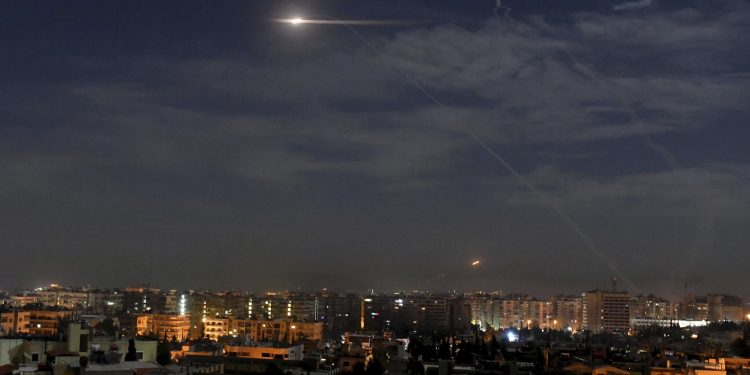Israel’s missile attack 2 January on the Damascus International Airport of Syria, the second in seven months, is in a sense a continuation of hostilities between the two countries. Yet, the timing is significant. It occurred four days after Benjamin Netanyahu had been sworn in as Prime Minister for the sixth time. The new government is the first of its kind in Israel’s history with Ultra-Right and Ultra-Orthodox parties joining it. This makes even the hawkish Likud Party of Netanyahu appear moderate. The attack, about which Israel remains characteristically silent, as it did on previous occasions, is being interpreted as a message by the new government to the world that it will be tough and aggressively implement its main anti-Palestinian, anti-reform, anti-women and anti-LGBTQ agenda.
Immediately after the strikes, Syria’s Foreign Ministry said the attacks were “part of a series of Israeli crimes” targeting Syria. The ministry called on the UN Security Council to condemn the Israeli aggressions and demanded those responsible should be held accountable and such attacks should not recur.
However, Israel has been continually launching hundreds of missile attacks on Syria in recent times. On 10 June last year, Israeli airstrikes on the same airport caused significant damage to infrastructure and runways. It reopened two weeks later after repairs. In September, Israeli airstrikes put the international airport of the northern city of Aleppo, Syria’s largest, out of service for days. Though Israel always refuses to take responsibility for strikes, it is an open secret that its target of attack is the Iran-supported Hezbollah and other militant groups working for the Syrian President Bashar Assad. Iran is known to be using the civilian airports of Syria to deliver arms and ammunition for the Hezbollah militants. Israel, it is believed, chooses Syrian airports for the missile attacks so as to disrupt the arms supply.
The latest Israeli attack appears to signal to Iranians, Syrians and Russians that Israel is going to maintain this policy of striking any target that it thinks is a danger to its own security. The new government controlled by the Far-Right and Ultra-Orthodox Jewish outfits can carry out attacks anywhere in the region it chooses since it is militarily superior to any combination of foes around them due to the US policy adopted years ago to ensure Israel’s military superiority. The air strikes on 2 January came days after the head of the Israeli military, Major General Oded Basiuk, presented the army’s operational outlook for 2023.
He explained Israel’s course of action in Syria is “an example of how continuous and persistent military action leads to shaping and influencing the entire region,” according to tweets by the Israeli military.
The attacks could be a dress rehearsal for the new government’s actions for expansion of settlement in the occupied West Bank, that goes against international law, and other forms of aggression in the coming days. Of the parliament’s 120 members, 63 voted in favour of the new government, with 54 votes against. Netanyahu himself explained in the Knesset, before being sworn in as the new PM, that resolving the Arab-Israel conflict is at the top of his agenda. How this can be done can be conjectured from the positions of Far-Right leaders who have been given top posts, such as Religious Zionism leader Bezalel Smotrich, and Jewish Power leader Itamar Ben-Gvir. Both of them live in illegal settlements in the West Bank.
Smotrich is finance minister with authority over settlements. Ben-Gvir was convicted in 2007 of incitement against Arabs after he called for Palestinians in Israel to be expelled. He is the national security minister with increased authority over the police, including in the occupied territories.
Palestinians now fear harsher policies against them will be adopted by the new government. They are also fearful of the status quo of the Al-Aqsa Mosque in occupied East Jerusalem.
The situation is aptly summed up by none other than Israeli President Isaac Herzog. He occupies a largely ceremonial position. Yet, he has warned of the potential harm the new Israeli government could bring about. The “entire world”, as he said, is worried about how the Ultra Right-driven government of Netanyahu is going to stoke passions in the region leading to a new cycle of violence and abuse of human rights.






































